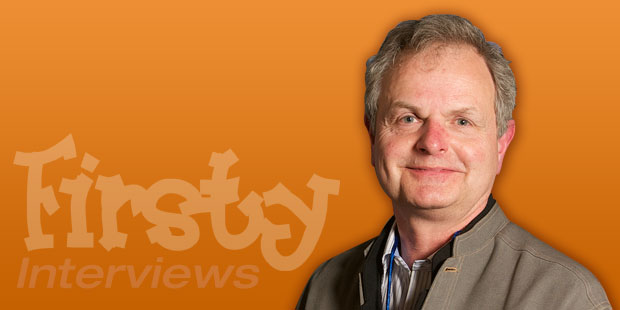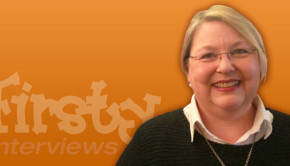Richard Cauldwell, teacher-trainer and founder of Speech in Action
“Human kind cannot bear very much reality,” wrote T.S. Eliot, and neither, it seems, can the English language teaching (ELT) establishment, which still clings to prescriptive models of teaching an ideal form of English, rather than teaching the language as it is really used and spoken. “Publishers, teacher-trainers and teachers treat the sound substance of language as if it is a rule-governed phenomenon,” says Richard Cauldwell, phonologist and ELT professional who won the prestigious ELTons Digital Innovations award last month. “But real speech is much wilder than this ideal, and much less amenable to description by rules. Although they have developed lots of tools that masquerade as ‘the teaching of listening’, they don’t really teach listening-to-real-stuff, particularly the decoding of real speech, with its fast speed, its lack of clarity.”
The forces of conservatism within ELT are huge, he says, with the major publishing houses believing that they have all the bases of language teaching well covered. And in any case, as they navigate their way through the current upheavals in the industry, they prefer to devote their financial resources to using the new technologies to deliver established brands and concepts, rather than investing in new ELT concepts. “This continued focus on the tidy forms of speech,” Richard comments, “means that they are still misrepresenting the ‘mess’ of everyday spontaneous speech and therefore still failing the student listener of English.”
Richard’s ELT career began with teaching English in France in 1972, followed by working for the British Council in Hong Kong and Japan until the late ‘80s and then joining the English department at the University of Birmingham in 1990. “The department was full of people doing innovative research on the analysis of real language use,” he recalls. In 2001 he set up Speech in Action to apply the written-language techniques being developed at Birmingham to the sound substance of recordings of everyday spontaneous speech. Within a few years he had four publications available online, the most successful being Streaming Speech: Listening and Pronunciation for Advanced Learners of English.
It was not until 2011, though, when he talked to Firsty at the London Book Fair, that Richard realized how much further he could go in influencing teacher-training and helping English learners. “When I saw how the multi-touch features of the iPad could create and animate the relationship between text and sound, I was more excited at seeing this than at almost any point in my professional life,” he says. The encounter led to the development, with Firsty, of his award-winning app ‘Cool Speech: Hot Listening, Cool Pronunciation’. He found the learning curve difficult at times because he had to adapt his thinking to how people use an iPad app. “There were crucial inputs from people in Firsty’s visual design and coding teams; one of them, whose first language wasn’t English, really ‘got’ what the app was about, and went the extra mile for me.” A mile that has paid dividends, with one of the ELTons judges saying that she would “certainly recommend the app to an advanced learner struggling with real-time English”. One of the lessons learned in creating ‘Cool Speech’ was that, with the next app, he’ll start with a much clearer sense of its overall navigation and go for simplicity in terms of end-user experience.
What is the next app likely to be? Richard says he’d like to do a series of listening and pronunciation apps for English around specific professions – doctors, businessmen, school teachers. And he might do a North American English version of ‘Cool Speech’. He’d also welcome approaches from major educational publishers, not only for investment in his projects, but also because of their marketing reach. “Marketing an app is something that no-one quite knows yet how to do,’” Richard observes. “It’s important to do something, but not to expect a direct return from the markets you address. Something this new needs time to bed in and to get adoptions from teacher-trainers recommending it to trainees, and teachers recommending it to students.”
With the ‘Cool Speech’ app, his current marketing strategy is based mainly on email marketing and on demonstrating the app at conferences and via YouTube. He has toyed with more off-beat ideas, though. “I could change the app’s subtitle to ‘Angry Birds Teach English’. Or ‘Fifty Shades of Grey Listening’. Or ‘Pronunciation with the Dragon Tattoo’. But I’d probably land up in jail.” Not a good idea, Richard, just when you and your work are starting to attract so much positive attention in both the ELT and digital publishing worlds. Oh, and congratulations on the ELTons award! Firsty is very proud to have worked with you on creating the ‘Cool Speech’ app.





